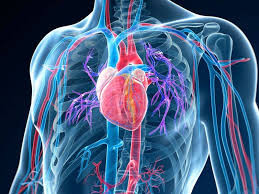People born after 1960 are now more likely to die from a killer disease in the UK, “worrying” new figures have shown. Cardiovascular disease fatalities are rising among adults aged under 65 for the first time in decades.
According to data analysed by the British Heart Foundation (BHF), the UK’s heart health has declined more quickly at the start of the 2020s than in any other decade for more than 50 years. There has been a rise in the rate and number of deaths in working-age adults aged 20 to 64 from cardiovascular disease.
The rate rose to 55 deaths per 100,000 in 2023 from 49 per 100,000 in 2019, which is the first sustained increase in at least a generation. Deaths in working-age adults rose by 18 per cent, from 18,693 in 2019, to 21,975 in 2023, averaging 420 a week.
Cardiovascular disease is a general term for conditions affecting the heart or blood vessels. These include heart attacks, strokes, coronary heart disease, and heart failure, among others.
Experts at the BHF have branded this trend “worrying” following decades of progress in which deaths from conditions like heart attack and stroke had nearly halved since the 1960s. This progress was attributed to research, medical advances, and falling smoking rates.
It is not known exactly what has caused this recent uptick in cardiovascular fatalities. However, it theorised that a number of factors could be linked, such as an “increasingly” unhealthy population, widening health inequalities, COVID-19, unprecedented pressure on the NHS, and obesity.
In light of the findings, the BHF has launched a new plan to help tackle cardiovascular disease in the UK. Dr Charmaine Griffiths, the chief executive of the BHF, said: “It’s been the worst start to a decade for heart health for half a century, but we’re entering an era of immense scientific opportunity that can turn this tide.
“By driving a research revolution, we can reverse this worrying trend and save more lives than ever before. The BHF's new strategy will be key to this, and the next step for us as we aim to save many more families the heartbreak of losing loved ones far too soon.” With the help of governments, partners and supporters, the charity has pledged to:
Reimagine how the UK prevents heart diseases through embracing advances in areas like data science, artificial intelligence and behavioural sciences to detect and treat those at risk much earlier
- Significantly increase investment in UK cardiovascular research, including by translating more discoveries made in UK universities to treatments trialled and rolled out across the health service
- Ensure UK health systems radically improve the care and support people with heart conditions receive, including finding new and innovative ways to help people better manage their health and live well for longer.
The BHF added: “We will also continue to campaign for governments across the UK to act in the best interests of the country’s heart health.”
Other concerning figures analysed by the BHF show that since 2020, there have been:
A 21 per cent rise in the number of people diagnosed with heart failure, up to a record high of 785,000 from 650,000
- A 10 per cent rise in the number of people diagnosed with atrial fibrillation, up to a record high of 1.62 million up from 1.48 million
- A 12 per cent rise in the number of adults diagnosed with diabetes, a major risk factor for cardiovascular disease, up to a record high of 4.6 million from 4.1 million
- A rise in rates of obesity. An estimated 29 per cent of the adult population – 16 million adults – now have a weight defined as obese, up from 27 per cent
- An 82 per cent increase in the NHS cardiovascular waiting list in England at 421,683 at the end of February 2025 up from 232,082 at the start of the decade. Cardiac waiting lists have also grown in Scotland, Wales, and Northern Ireland.
Source: Surrey Live. Story by Fiona Callingham
The UK’s heart health has declined more quickly at the start of the 2020s than in any other decade for more than 50 years.





